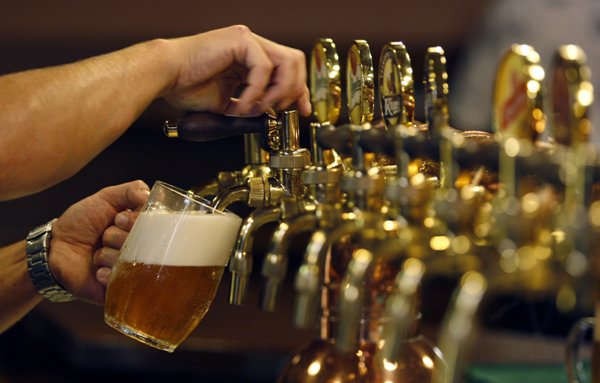
MARSHALL COUNTY – One question will settle a sizzling debate this summer at the ballot box: “Are you in favor of the sale of alcoholic beverages in Marshall County, Kentucky?” It’s clear where leaders on either side of the debate stand, but what do everyday voters think?
Jake Petway, 30, who lives near the McCracken County line in northwestern Marshall County, plans to vote yes. For Petway, a married father of two, his decision to vote in favor of alcohol sales boils down to two factors: revenue and autonomy.
Petway said it no longer makes economic sense for the county to stay dry. He believes tourism at Kentucky Lake would greatly benefit from alcohol sales. “You have people that come into town, spend time at the lake, then go to Paducah or Murray to eat their dinner. So they are spending their money in other counties because of an antiquated law,” he said.
He does not believe that allowing alcohol sales will attract major chain restaurants to the county, but, in his opinion, that’s a good thing, as it might encourage more local restaurants and other businesses. “There would be new taxes from the businesses and from their employees being paid in the county. All that on top of the money from the liquor licenses” said Petway.
Justin Perdun, 32 of western Marshall County, agrees. He believes allowing the sale of alcohol would have a beneficial monetary impact. “Tax money … could be spent by a group of people that are looking out for the well-being of this county,” Perdun said. He considers himself part of that group. If local restaurants served alcohol, he said he would gladly spend his money closer to home rather than dining in McCracken or Calloway counties.
Petway also believes that residents of legal age should have the option to buy alcohol in the county if they choose. “If it’s not in your values to drink, that’s fine. Personally, I won’t drink; I’ve been sober for six years now, but I’m not the entire county’s moral compass. Having access to it won’t make me want to drink,” Petway said.
He believes that proximity will actually discourage people who might otherwise consider drinking and driving. Petway said that if alcohol sales are allowed in the county, people who want to drink might be more apt to visit their local liquor store or convenience store and return home to drink, thus keeping them off the roads after drinking in a restaurant or bar in Paducah or Murray.
Former Marshall County resident Nate Rottgering, 33, moved to Livingston County because of lessened economic opportunity. “I would have stayed if I could have found a job that would have possibly been based on increased tourism,” he said. “The sale of alcohol in the area could have definitely changed that.”
Shelly Bowers, 29, is in a similar situation. Bowers, born and raised in Marshall County, moved to Paducah for work, but her family remains local. She is on the fence about the alcohol issue. “I see both sides,” she said. “My initial concern is the possibility of more alcohol-related crime.” Bowers said she is also worried about the kind of businesses that might try to build if the measure is passed. On the other hand, she believes it would increase local tourism dollars. “Think of all the best vacation spots. Restaurants and bars bring people, and people bring boutiques and shops,” she said. “All of these bring jobs. That being said, I’m still not sure I’m for it.” For Bowers, one point weighs heavy on her mind: “It’s home, and I’m not sure I want it to change.”
Of Kentucky’s 120 counties, 81 are dry, 35 are wet and four are moist, which means that alcohol sales are legal with certain restrictions. Some towns and precincts, including Calvert City, have passed liquor-by-the-drink ordinances. Kentucky Dam Village State Resort Park was recently annexed to Calvert City, and now offers alcoholic beverages in its dining room.
The issue will go to the voters in a special election on July 28. More than 3,366 voters – 25 percent of the county’s populace – signed a petition requesting a special election. The measure was defeated by fewer than 700 votes the last time it appeared on the ballot in 2012.
This article is the first in a two-part series regarding the wet/dry vote. Opinions from residents on the other side of the issue will follow.